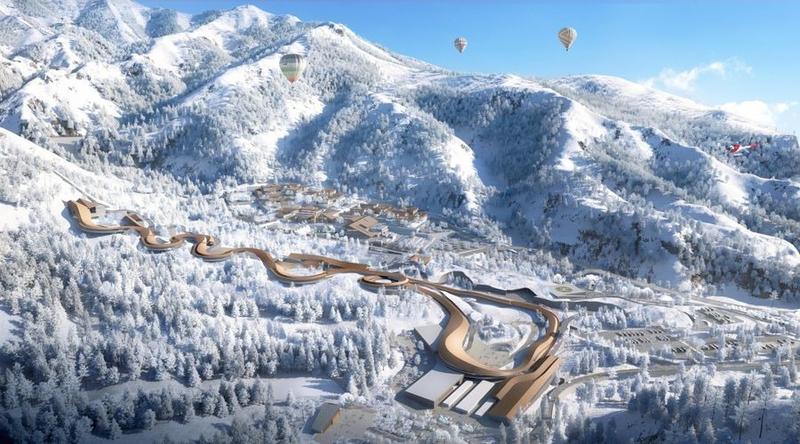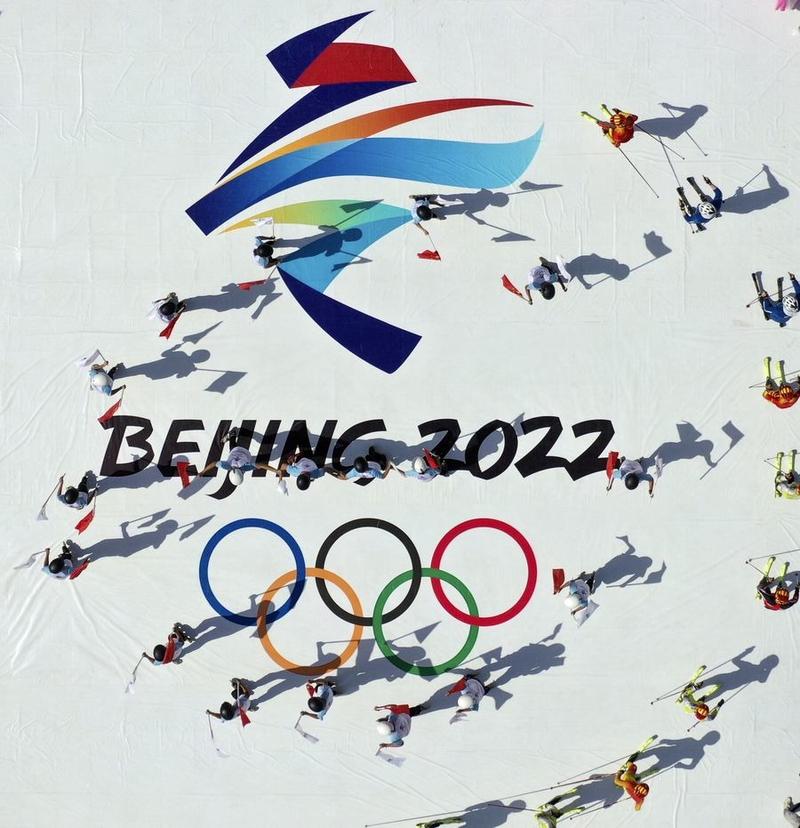 This March 4, 2020, photo shows a rendering of the National Sliding Center for 2022 Winter Olympic Games in Beijing, China. (PHOTO / XINHUA)
This March 4, 2020, photo shows a rendering of the National Sliding Center for 2022 Winter Olympic Games in Beijing, China. (PHOTO / XINHUA)
BEIJING - As the first city to host both the Summer and Winter Olympics, Beijing is not only planning for the 2022 Winter Olympic Games itself, but also preparing for the future.
The legacy of Beijing 2008 Olympic Games include the Bird's Nest and Water Cube, both of which will be repurposed for the 2022 Winter Olympics
On the basis of integrating the concept of Olympic legacy early on since the bid and planning stage, the organizing committee for the 2022 Winter Olympics (BOCOG) set up an ad hoc office in September 2017.
"In other words, nearly four and a half years away from the opening ceremony of the Beijing Winter Olympics, the planning and management of the Olympic legacy had already been listed on the agenda, in an effort to make all preparation work leave a rich legacy for the future," said Liu Xinghua, head of BOCOG's legacy office.
The legacy of Beijing 2008 Olympic Games include the Bird's Nest and Water Cube, both of which will be repurposed for the 2022 Winter Olympics, while the National Speed Skating Oval, Big Air slope and other new venues will become future legacies.
ALSO READ: Budding skiers hit indoor slopes in China ahead of Winter Games
"The owner of the National Speed Skating Oval has a lot of good ideas for future use after the 2022 Winter Olympics, and has reserved space in advance, allowing this largest ice rink in Asia to accommodate 2,000 people at the same time," said Liu.
"It also has separate refrigeration and illumination areas that are environmental friendly and energy saving, meeting the demand of hosting different events simultaneously."
 Aerial photo taken on May 11, 2019 shows the performance during the 1,000-day countdown celebrations of the Beijing 2022 Winter Olympic Games in Chongli of Zhangjiakou City, north China's Hebei province. (XING GUANGLI / XINHUA)
Aerial photo taken on May 11, 2019 shows the performance during the 1,000-day countdown celebrations of the Beijing 2022 Winter Olympic Games in Chongli of Zhangjiakou City, north China's Hebei province. (XING GUANGLI / XINHUA)
Liu added that Beijing's Olympic legacy is far broader than just venues. "It includes but is not limited to the use of venues after the Olympics, snow sports promotion, Olympic talents recruitment, high-quality city development and volunteer training."
A more civilized society and a more livable environment will leave an intangible legacy afterwards as well, he noted.
A photography enthusiast, Liu has been trying to capture and record the changes brought about by the 2022 Winter Games through his camera lens. The newly-built facilities like the "Big Air" slope at the Shougang Industrial Park have formed a unique but compelling scene.
"As the sun goes up and down, it is truly meaningful to record all the changes throughout the years," he said.
15 years ago, Liu worked in the logistics department of the Beijing 2008 Olympic organizing committee, and was responsible for the storage, delivery and retrieval of all sporting and technical equipment and other stage props.
READ MORE: Olympic preparations on track despite COVID-19 challenge
"At some point that summer, I thought I would dedicate my whole life to the Olympic cause, so I haven't left since 2008. No matter what task I am given, I always treat it with 100 percent enthusiasm," said Liu.
Though the Winter Olympic legacy project is a relatively new mission, Liu already has his own understanding on it.
"The earlier you start to plan, the sooner you will benefit from it. Only scientific and proper planning can maximize the return in the long term," he said.


